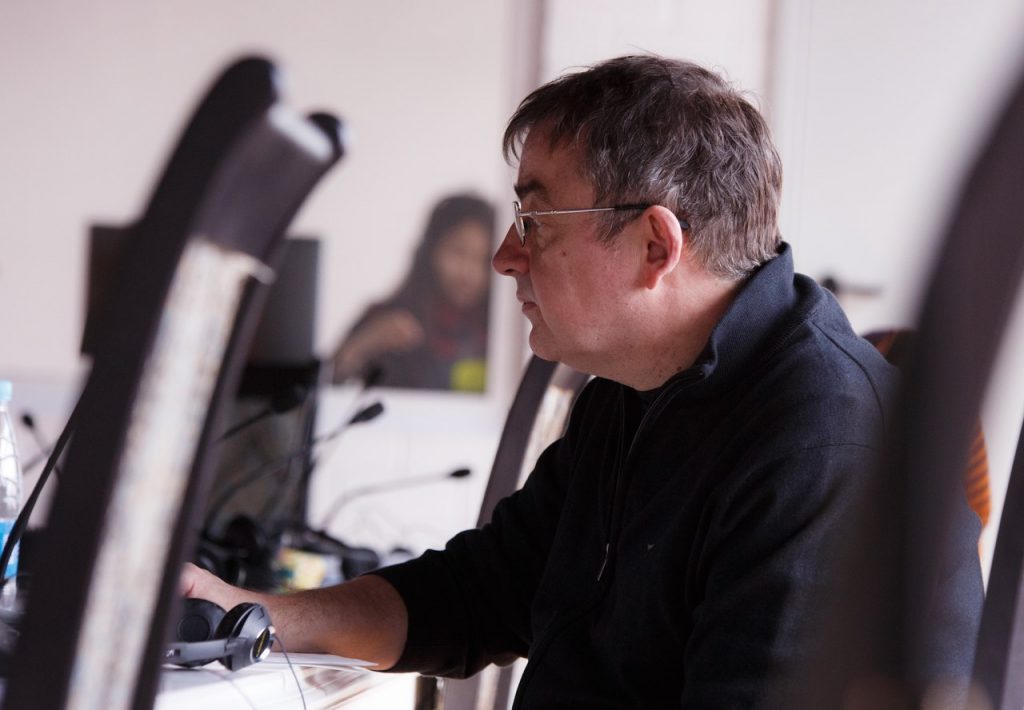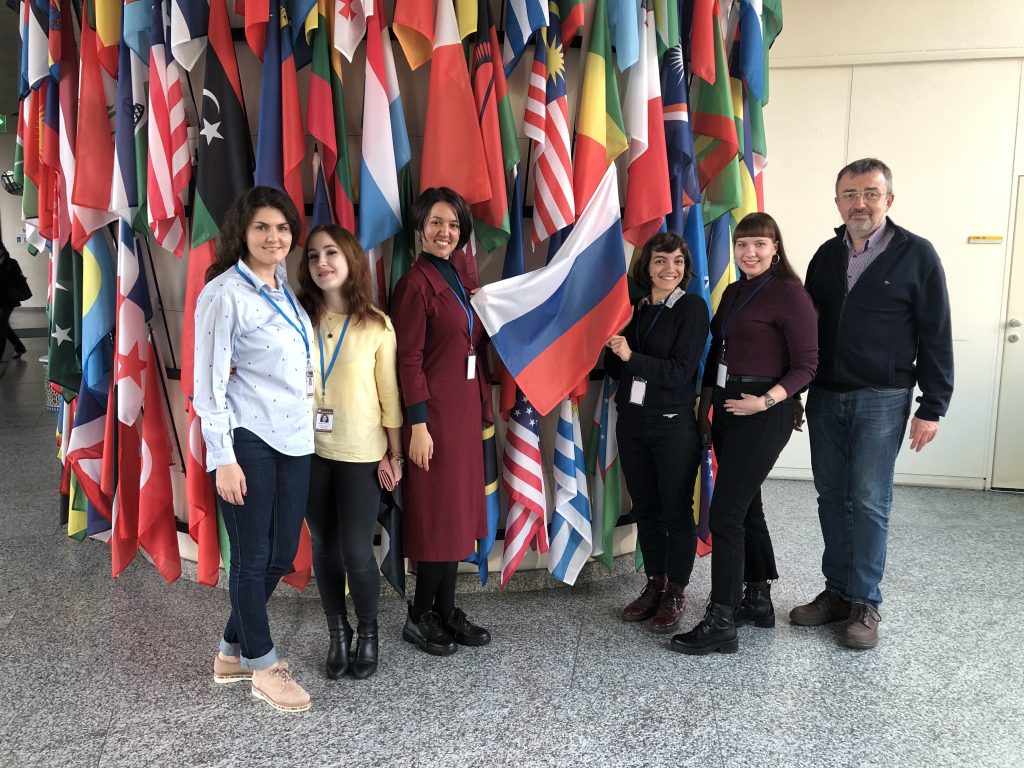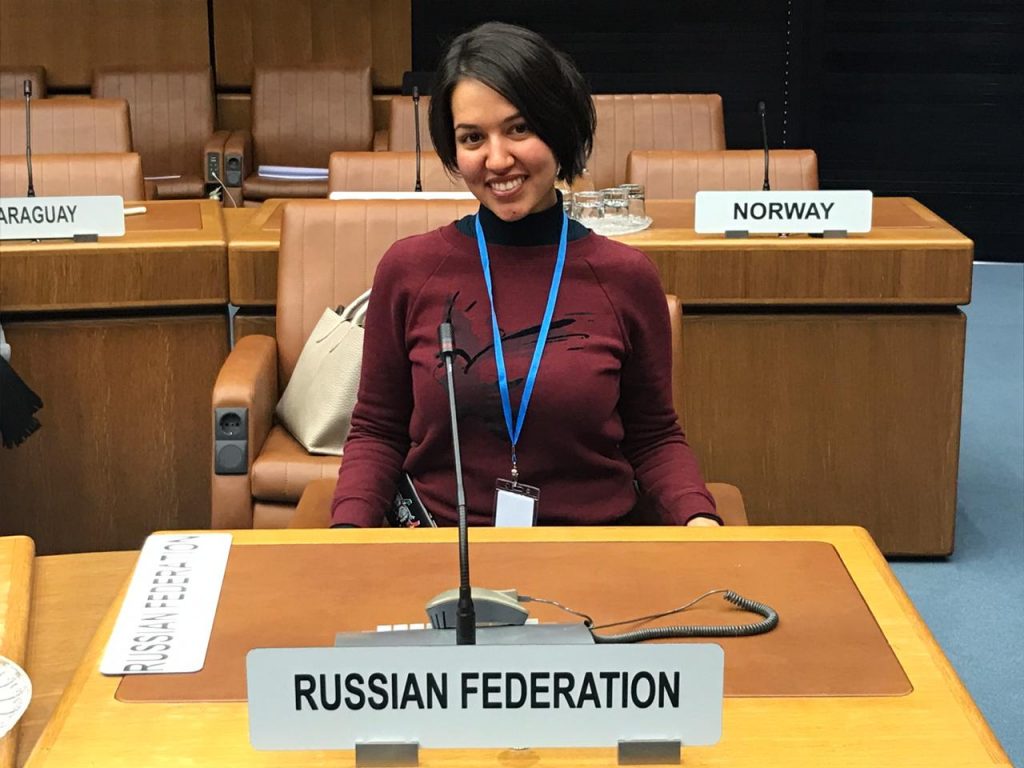CITS MA Students are Mastering Their Skills in the UN
From October 14th to 18th 2-year MA student Sara Nakolli and 2019 graduate Polina Karabalaeva undertook a traineeship at the United Nations office in Vienna.
For five days the trainees were enhancing their skills of simultaneous interpretation and learned more of the specifics of work in the international organization under the guidance of Russian booth interpreter Nikolai Telnov, who regularly conducts his master classes for the students of the Caspian Higher School of Interpreting and Translation.
The trainees had an opportunity to work at two sessions on different topics. Within the framework of the UN Commission on International Trade Law, a session of the Working Group “Investor-State Dispute Settlement Reform” was held. The delegates considered the issues of reforming the existing system: establishment of an International Advisory Centre, third-party funding, dispute prevention, etc. In the framework of the Commission on Narcotic Drugs Member States representatives discussed demand and supply reduction of the narcotic substances, as well as measures to prevent drug use.
The students started their day with a sight translation to prepare for interpretation in the booths. During the afternoon sessions the students had master classes by Russian, French and English booths interpreters. Usually the interpretation in the UN is done into interpreters’ native language, however interpreters also have their techniques in working with retour – interpreting from their mother tongue into a foreign one.
The students also had an opportunity to get first-hand information about experts’ methods. Sergey Tyurin, the UN translation service expert, spoke about features of the existing legal systems and their impact on the modern translation. Sarah Irene, the English booth interpreter, who visited Astrakhan with her master classes for CITS MA students earlier this year, shared her methods of interpretation with the trainees.
Each interpreter has their own approach to work, but all of them agree that the success of an interpreter is based on regular practice and conscious analysis of mistakes.








